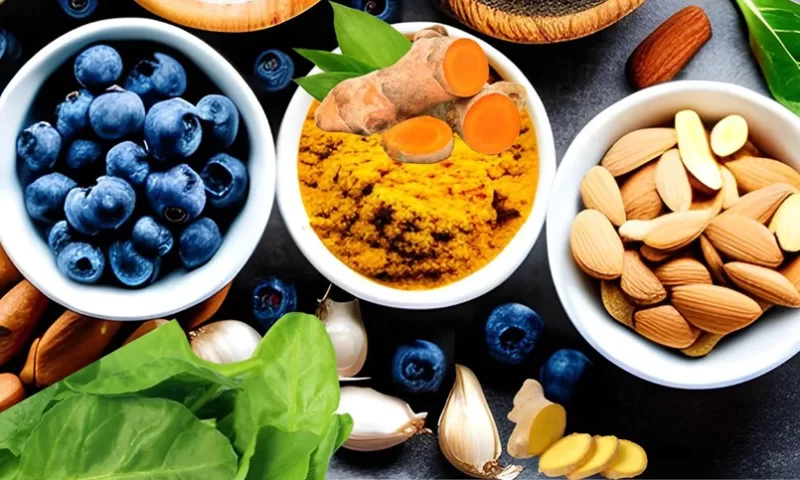
Exploring Wellhealthorganic.com:vitamin-e-health-benefits-and-nutritional-sources
Wellhealthorganic.com:vitamin-e-health-benefits-and-nutritional-sources: Vitamin E, a fat-soluble micronutrient, plays a crucial role in maintaining optimal health. While there are various forms of vitamin E, the human body predominantly utilizes alpha-tocopherol. Discovered in the 1980s, the significance of antioxidant vitamins like vitamin E gained prominence as researchers recognized their role in combating free radical damage, associated with conditions such as atherosclerosis, cancer, and vision loss.
Understanding Micronutrients:
Micronutrients, including vitamins A, B1, B2, B3, B5, B6, B9, B12, C, D, E, and K, are essential for the body’s proper functioning. Consuming a well-balanced diet often provides these vitamins, but a nutritionist can help tailor recommendations based on individual needs.
Vitamin E Benefits:
- Controls Oxidative Stress: Acts as an antioxidant to protect cells from free radicals, helping to manage inflammation.
- Controls Diabetes: Slows the progression of diabetes by addressing elevated oxidative stress levels.
- Maintains Healthy Skin: Exhibits antioxidant properties, making it a valuable addition to skincare products for its healing properties.
- Reduces Osteoarthritis Pain: Protects against osteoarthritis by lowering oxidative stress levels, alleviating pain and stiffness.
Also Read : Wellhealthorganic.com know the causes of white hair and easy ways to prevent it naturally
Additional Benefits:
- Cataract Avoidance
- Neurodegenerative Disorder Prevention
- Reduced Risk of Cardiovascular Disease
Sources of Antioxidant Vitamin E:
- Seed Oil from Wheat Germ: Rich source with 255 milligrams per 100 grams, but it is highly perishable and expensive.
- Almonds: Widely consumed nuts, providing 25.6 mcg of vitamin E per 100g serving.
- Sunflower Seeds: High in healthy fats and vitamin E, offering 35.7 milligrams per 100 grams.
- Peanuts: Legumes rich in protein, providing 44% of the recommended daily dose per 100 grams.
- Spinach: Low-calorie vegetable with 44% of the daily intake per 100 grams, suitable for various dishes.
Signs of Vitamin E Deficiency:
- Imperfect Vision
- Disorganized Physical Coordination
- Immune Deficiency
- Muscle Weakness
- Peripheral Neuropathy (Numbness or Tingling Sensations)
Conditions Increasing Risk of Deficiency:
- Crohn’s Disease
- Cystic Fibrosis
- Ataxia Cholestasis and Severe Pancreatitis
Also Read : Wellhealthorganic.com know why not to reuse plastic water bottles know its reason in Hindi
Natural Food Sources:
- To ensure sufficient intake of vitamin E, include the following foods in your diet regularly.
Conclusion:
Wellhealthorganic.com:vitamin-e-health-benefits-and-nutritional-sources, Vitamin E deficiency is rare due to its abundance in various foods. However, individuals not consuming enough fat may risk deficiency. Symptoms such as retinal damage, peripheral nerve issues, and ataxia indicate a potential deficiency, warranting consultation with a healthcare professional.
FAQs
1. Why is vitamin E important for health?
Answer: Vitamin E is crucial for its antioxidant properties, protecting cells from free radicals and aiding in managing inflammation. It also plays a role in diabetes prevention, skin health, and reducing osteoarthritis pain.
2. What are the main sources of vitamin E?
Answer: Vitamin E-rich sources include wheat germ oil, almonds, sunflower seeds, peanuts, and spinach. These foods provide a variety of options for incorporating this essential nutrient into your diet.
3. How can I recognize a vitamin E deficiency?
Answer: Symptoms of vitamin E deficiency may include imperfect vision, disorganized physical coordination, immune deficiency, muscle weakness, and peripheral neuropathy (numbness or tingling sensations). If these signs occur, seeking medical advice is recommended.
4. Are there specific conditions that increase the risk of vitamin E deficiency?
Answer: Yes, conditions such as Crohn’s disease, cystic fibrosis, and ataxia cholestasis with severe pancreatitis can elevate the risk of vitamin E deficiency. Individuals with these conditions should be mindful of their vitamin E intake.
5. Can I get enough vitamin E through a balanced diet alone?
Answer: In most cases, a well-balanced diet provides sufficient vitamin E. However, individuals with specific dietary restrictions or medical conditions may benefit from consulting a nutritionist to ensure they meet their body’s specific vitamin E requirements.

